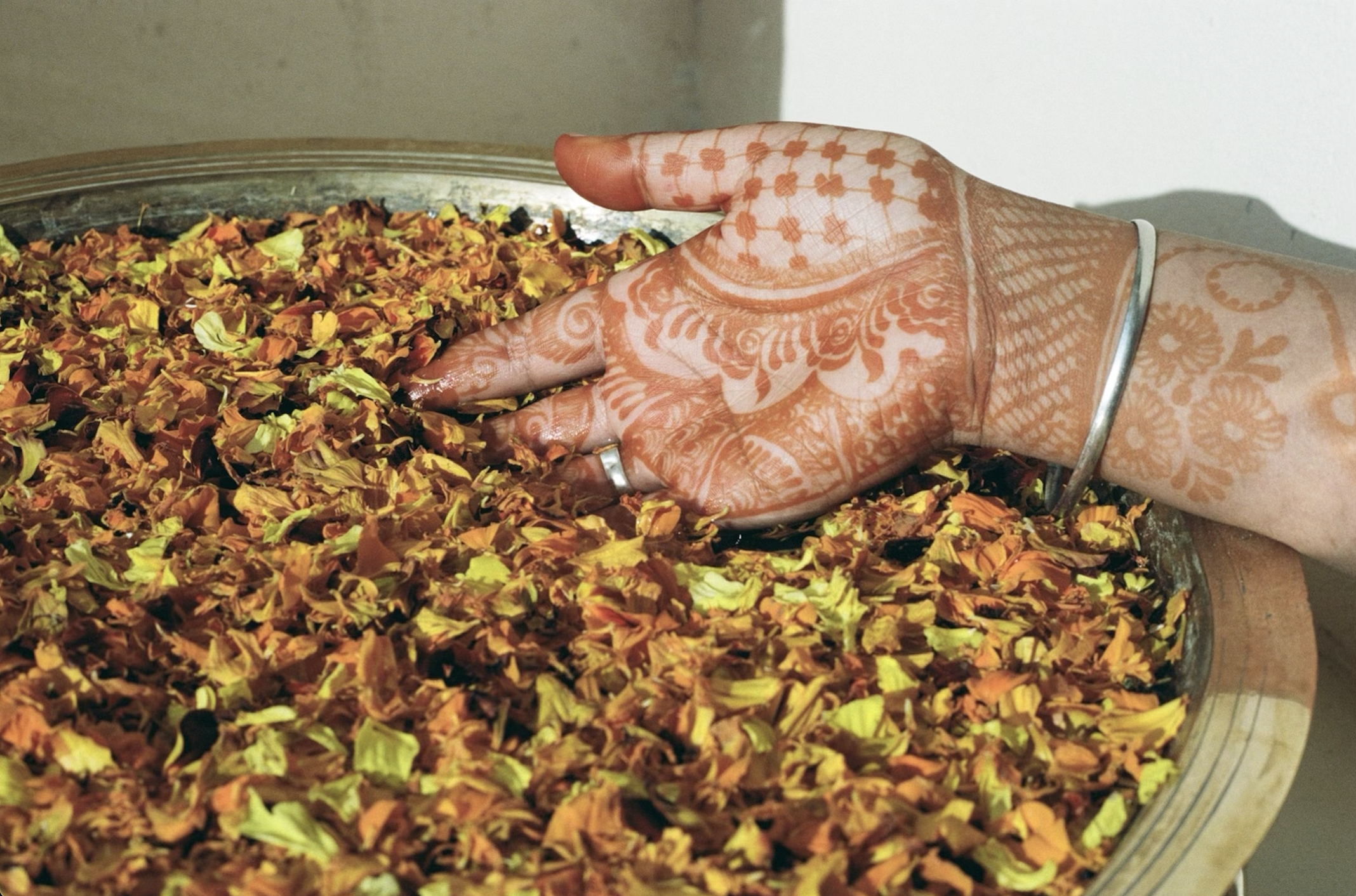A FACE MASK FIXES IT ALL, RIGHT?


Saffron Sener
06 May 2019
A year or two ago, I resented the entire concept of self-care. Be this a side effect of my prideful need to balance my academics, extra-curriculars, and personal life without any admission of weakness or my pretension regarding that which is deemed “trendy” in general, I’m not sure. Bath bombs, yoga, face-care routines: all of it was too much. Too much feel-goodness. Too much caring for the self. Too much for me.
I sing a different tune now, though. Frenzied for face masks and painting my fingernails like it will fix my overwhelming schedule, lack of sleep, and overall inescapable sense of stress, my weekly routine is dotted with time slotted off for “self-care.” There’s even a whole folder on my laptop dedicated to recipes, organizational tips, DIY face masks, lip balms and the like. Each morning and each night I’ve carved out specific, special time to wash my face, apply an array of lotions, balm my lips. My bathroom cabinet is filled up with supplies to sustain this, all neatly organized into clear acrylic boxes across the shelf.
This is, inherently, constructive. The folder is a reminder of ways I could treat myself better. The time is for myself, a little exclusive moment where I’m forced to literally wash away the dirt and the stress of the day. The organization keeps me from frantically searching for things.
Conversely, though, I can see myself becoming almost obsessively attached. Going to sleep is just that much harder if I haven’t taken that time. Getting ready in the morning is the same. I struggle to step out of the house if my skin is tight—reminds me too much of when I refused to lotion my otherwise oily skin in high school and suffered through hours of feeling like a mask was stretched across my face. This preoccupation goes hand-in-hand with my newfound love for cleaning, manifesting itself as a daily making of my bed, regimented organization of my desk, a certain tangible stress when I haven’t vacuumed or dusted or done laundry in a bit—a set of feelings somewhat new to someone who used to live in a messy, messy way.
Is this a complaint or a comment? An observation or an outpouring? Who can know? I do know, though, that these words are at least a capturing of my grappling with the nuances of “self-care”—how taking time out of my day to specifically treat my body in a positive way may not always indicate a positive mindset. Washing my face like I’m healing my mind and body with each splash of water is—both objectively and subjectively—not a bad thing, but not a good thing either. It’s a pretend solution to bigger problems. I will say, it’s a nice interlude to my tendency to dye or cut my hair in moments of distinct stress. What worries me, though, is how attached I’ve become, almost dependant in a way, to this routine of cleanliness. What might this say about what I need?
And, further, what does this indicate about the trend of “self-care”? Anyone with social media or access to the internet (or just Buzzfeed, really) knows of it and its major moment in recent years. Lush blew up like bath bombs were saving the world, the catchphrase “treat yo self” from Parks and Rec became an inescapable phrase. But is this wrought from a deep, widely ignored and newly discovered urge to indulge, or from a common, youth-driven need to escape? The “adults” (a.k.a., anyone over the age of thirty-five) in my life don’t practice any recognized “self-care” activities, nor are any of their de-stressers acknowledged under that terminology.
Younger generations brought the idea to fame and fortune, hopping on as if it would fix whatever truly sits at the root of our suffering. My friends and I throw around the term for just about anything we do that’s not school—eating a candy bar? going out tonight? not doing homework? don’t worry, it’s just self-care. The concept is a unifier: faced with a jobless, moneyless, politically turbulent, socially dangerous, environmentally unstable future, us younger folx deserve this time for ourselves, time spent caring for our bodies that are so typically on the line.
We deserve to not need these self-rituals, too, though. We deserve to not be as stressed and strained as we are, scraping by and being forced to carve time out of our schedules for regular things like painting our nails, convincing ourselves it’s okay because it’s “self-care.” We deserve to be able to care about ourselves without it being a trend, without it having to be something in order to be alright.
I sing a different tune now, though. Frenzied for face masks and painting my fingernails like it will fix my overwhelming schedule, lack of sleep, and overall inescapable sense of stress, my weekly routine is dotted with time slotted off for “self-care.” There’s even a whole folder on my laptop dedicated to recipes, organizational tips, DIY face masks, lip balms and the like. Each morning and each night I’ve carved out specific, special time to wash my face, apply an array of lotions, balm my lips. My bathroom cabinet is filled up with supplies to sustain this, all neatly organized into clear acrylic boxes across the shelf.
This is, inherently, constructive. The folder is a reminder of ways I could treat myself better. The time is for myself, a little exclusive moment where I’m forced to literally wash away the dirt and the stress of the day. The organization keeps me from frantically searching for things.
Conversely, though, I can see myself becoming almost obsessively attached. Going to sleep is just that much harder if I haven’t taken that time. Getting ready in the morning is the same. I struggle to step out of the house if my skin is tight—reminds me too much of when I refused to lotion my otherwise oily skin in high school and suffered through hours of feeling like a mask was stretched across my face. This preoccupation goes hand-in-hand with my newfound love for cleaning, manifesting itself as a daily making of my bed, regimented organization of my desk, a certain tangible stress when I haven’t vacuumed or dusted or done laundry in a bit—a set of feelings somewhat new to someone who used to live in a messy, messy way.
Is this a complaint or a comment? An observation or an outpouring? Who can know? I do know, though, that these words are at least a capturing of my grappling with the nuances of “self-care”—how taking time out of my day to specifically treat my body in a positive way may not always indicate a positive mindset. Washing my face like I’m healing my mind and body with each splash of water is—both objectively and subjectively—not a bad thing, but not a good thing either. It’s a pretend solution to bigger problems. I will say, it’s a nice interlude to my tendency to dye or cut my hair in moments of distinct stress. What worries me, though, is how attached I’ve become, almost dependant in a way, to this routine of cleanliness. What might this say about what I need?
And, further, what does this indicate about the trend of “self-care”? Anyone with social media or access to the internet (or just Buzzfeed, really) knows of it and its major moment in recent years. Lush blew up like bath bombs were saving the world, the catchphrase “treat yo self” from Parks and Rec became an inescapable phrase. But is this wrought from a deep, widely ignored and newly discovered urge to indulge, or from a common, youth-driven need to escape? The “adults” (a.k.a., anyone over the age of thirty-five) in my life don’t practice any recognized “self-care” activities, nor are any of their de-stressers acknowledged under that terminology.
Younger generations brought the idea to fame and fortune, hopping on as if it would fix whatever truly sits at the root of our suffering. My friends and I throw around the term for just about anything we do that’s not school—eating a candy bar? going out tonight? not doing homework? don’t worry, it’s just self-care. The concept is a unifier: faced with a jobless, moneyless, politically turbulent, socially dangerous, environmentally unstable future, us younger folx deserve this time for ourselves, time spent caring for our bodies that are so typically on the line.
We deserve to not need these self-rituals, too, though. We deserve to not be as stressed and strained as we are, scraping by and being forced to carve time out of our schedules for regular things like painting our nails, convincing ourselves it’s okay because it’s “self-care.” We deserve to be able to care about ourselves without it being a trend, without it having to be something in order to be alright.

